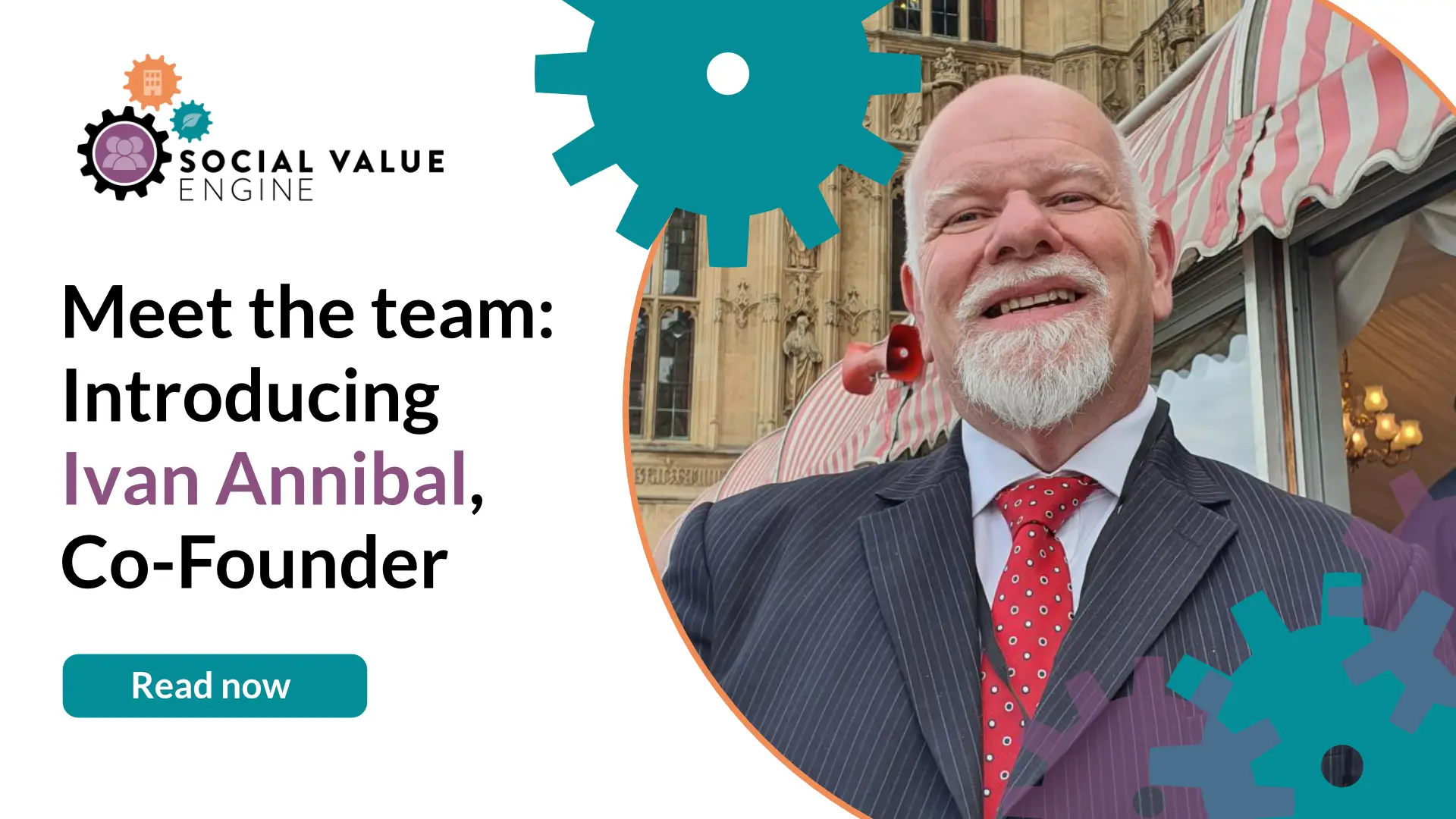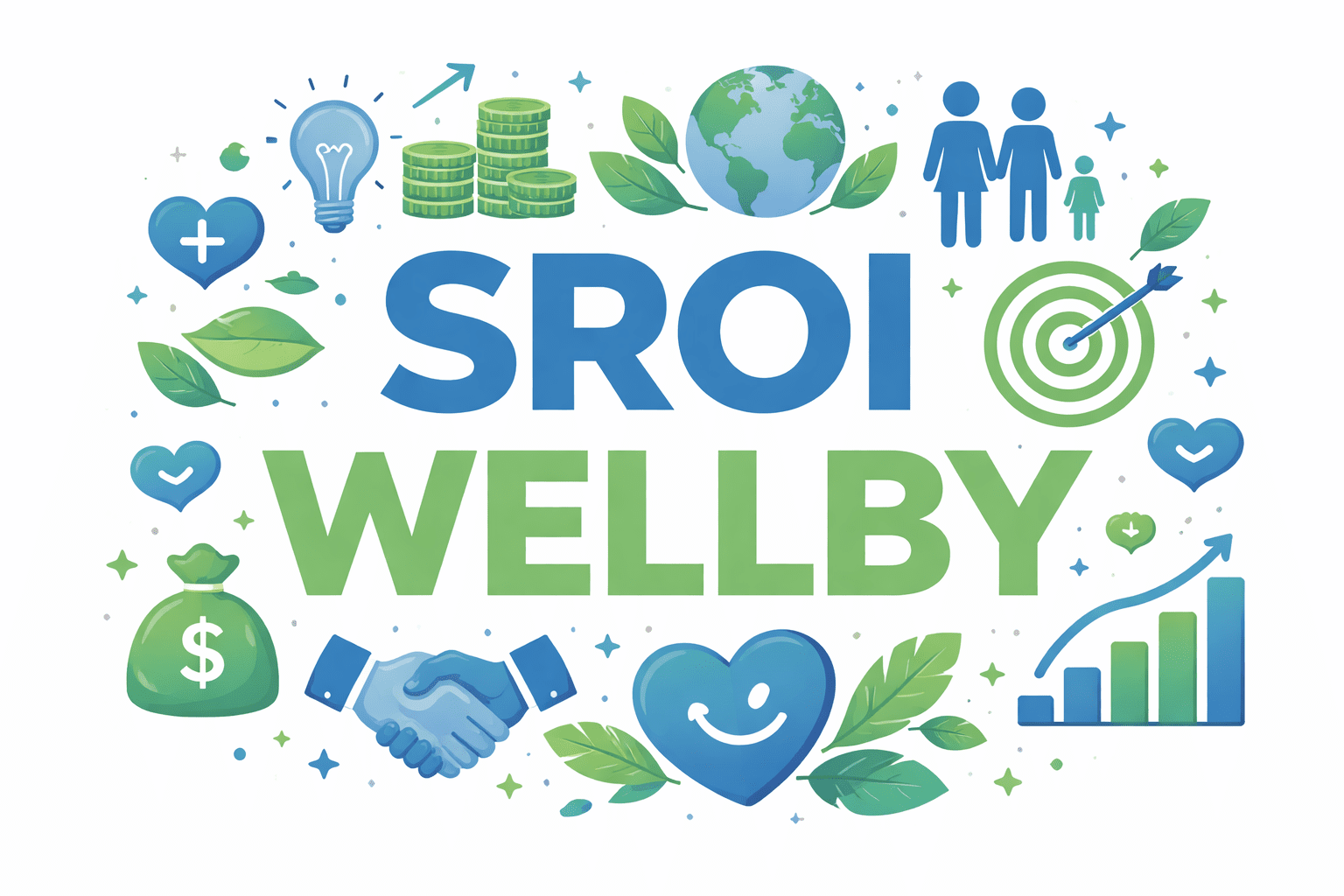Welcome to the second feature of our ‘Meet the Team’ series at the Social Value Engine. In this series, we are introducing you to the pivotal figures behind our mission, each with their unique stories and contributions.
Today, we’re featuring Ivan Annibal, co-founder of the Social Value Engine. Ivan’s background includes extensive experience in the public sector before he transitioned to developing the Engine. In this interview, he will discuss his journey from public service to co-founding the Social Value Engine, highlighting his practical experiences.
Could you introduce yourself, please?
I’m Ivan Annibal, I’m the co-founder of the Social Value Engine, which is a platform for assessing social impact and has been running for about 10 years now.
What’s your role within the social value engine?
As a co-founder, I initially developed the tool, and now I lead its deployment in various fields. My role involves coordinating with team members who manage different aspects of the tool, ensuring its seamless integration and ease of use for our clients.
Can you share a bit about your journey in the field of social value and your role in developing the social value engine?
My journey began in the public sector, where I focused on optimising the use of public and private funds for effective interventions. About a decade ago, while working with East Riding of Yorkshire Council on a European-funded project, we explored the value of volunteering across the EU. This project aimed to quantify intangible aspects such as community adaptation, neighbourly connections, personal well-being, and the impact of voluntary work.
At that time, social value was an emerging field. We had to pioneer a method to measure these intangible elements, starting with a basic spreadsheet model. This rudimentary tool, surprisingly, garnered significant interest, prompting us to invest further in its development.
Over the past 10 years, we’ve grown significantly. We’ve hired a full-time programmer, built a team to promote the Social Value Engine, and expanded our content. We now have a substantial network of around 500 to 600 license holders. The tool is widely used in the UK and is expanding internationally, with clients in the Republic and growing interest in other OECD countries and North America. This expansion reflects our initial ambition to create a tool with global relevance and impact.
Could you tell us more about Rose regeneration versus the Social Value Engine? How do they work together? What’s the relationship between them?
Rose Regeneration, established in 2008 by me as a consultancy firm, served as the foundation from which the Social Value Engine was developed. My experience in local authorities influenced the creation of Rose Regeneration, a commercial organisation with a strong social focus. We specialise in consultancy, particularly in rural and coastal areas, but our services extend across the UK. With a diverse portfolio of about 25 projects at any given time and a team of eight staff, Rose Regeneration has a robust presence in the consultancy sector.
The Social Value Engine emerged as a distinct entity from the volunteering project I mentioned before, under Rose Regeneration. This project sparked my interest in social value. Recognising the potential and demand for such a tool, we decided to spin off the Social Value Engine as a separate business.
Today, the Social Value Engine operates independently, with its own dedicated team, while I divide my time between it and Rose Regeneration activities. Ownership of the Social Value Engine is primarily mine, but East Riding of Yorkshire Council also holds equity, reflecting a unique blend of public and private sector insights. This combination allows the Social Value Engine to approach the market with a balanced perspective, integrating public sector background with commercial acumen.
Rose Regeneration, though a separate entity, played a crucial role in nurturing and developing the Social Value Engine, contributing its ethical, moral, and business-oriented principles to the latter’s success.
We sincerely thank Ivan Annibal for taking the time to share his insights and experiences. We look forward to presenting more of Ivan’s expert perspectives on social value in our upcoming articles. Keep an eye on our blog for these future articles.


